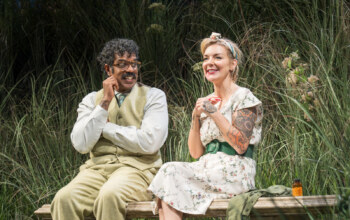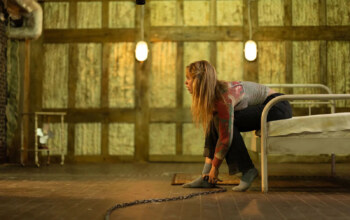Celebrities beyond the law: Jimmy Savile

Since accusations of sexual assaults by the late television presenter Jimmy Savile re-emerged in September this year, the British media has taken another beating since the recent phone hacking scandal. The BBC, defined by – and proud of – the apparently complete impartiality of its journalists and programmes, is facing both public and internal scrutiny. Over 200 victims have found the courage to come forward, and the police have said that they are currently following 400 lines of enquiry.
Questions are rightly being raised about Savile’s access to his victims. Allegations against him have been made since 1958, and there have been six investigations into the claims – all dropped after police repeatedly concluded that there was insufficient evidence to prosecute.
Yet he was still continually allowed contact with young members of the public – at Stoke Mandeville Hospital where he was a major donor and at the psychiatric hospital Broadmoor where he lead a taskforce in 1998 (both events are currently under investigation by the Department of Health), and more specifically by the BBC during his time presenting the show Top of The Pops, where allegations of underage sex occurring in the changing rooms were made in the 1960s.
The revelations have led to multiple concessions from BBC employees that they were not entirely ignorant of some of the things that are alleged to have happened. The patron of children’s charity Childline, Esther Rantzen, who also worked at the BBC during Savile’s time on Jim’ll Fix It, told Channel 4 News: “I heard the rumours almost immediately. It was always said that he behaved inappropriately with children, but rumours are not evidence.”
Incidentally, it was reported on the 25th October that Rantzen has since passed on emails with the details of three people believed to have behaved equally inappropriately to Savile during their time at the BBC.
BBC Radio DJ, Tony Blackburn, who broadcasted in the 60s and 70s, concurred with Rantzen, saying of Savile: “He was not a nice man despite how the public viewed him at the peak of his success. There were always rumours circulating about him.”
It is neither fair nor possible to speculate on why those in the know did not come forward. The press are constantly reporting that reports of the abuse were quashed, and it is a widely held belief among journalists reporting on the story that people were unwilling to challenge such a famous and beloved member of society. However, what seems clear to many is that in the wake of the scandal there will be serious repercussions and perhaps changes to the BBC.
The most serious problem that the BBC is currently facing is related to the corporation’s decision to scrap a Newsnight investigation into the presenter, and the allegations surrounding him, in December 2011. No reason has been given for the decision not to broadcast the programme, though there was an investigation by Panorama, into both Savile’s career and the BBC’s decision not to investigate the accusations that surrounded him.
In a memo, it was claimed that the programme would have discussed the police investigation into Savile, though this was heavily disputed until it emerged that the subject of the show would in fact have been whether or not Jimmy Savile was a paedophile.
As a result of the sudden decision by Newsnight editor Peter Rippon, the BBC is now facing what the BBC’s world affairs editor, John Simpson, is calling the “worst crisis that I can remember at the BBC”. What remains to be seen is what action will be taken, as many critics are blaming the BBC’s culture for allowing the attacks to continue.
Many believe that Peter Rippon is almost certainly out of a job, but Conservative MP Roger Gale warned today that he believed figures such as Director General George Entwistle – in his post since 17th September 2012 – and the chairman of the BBC Trust, Lord Chris Patten, may need to “fall on their swords” to allow for a shake-up of the BBC and to prevent such a scandal occurring again.
There seems to be no doubt that Jimmy Savile’s actions have the potential to do lasting damage to the reputation of the BBC, if they haven’t already. The worry among many is that the political and media repercussions of the case may overshadow the criminal aspect and the victims of Savile’s actions.
This case does not represent the first time that a celebrity has been put on a pedestal, and has, as a result, been treated as though they are beyond the law to the detriment of their victims. In a way, Savile’s employer is irrelevant. The more important thing to consider is how to stop celebrities from exempting themselves from a law under which the rest of us live.
Abbie Cavendish
























Facebook
Twitter
Instagram
YouTube
RSS